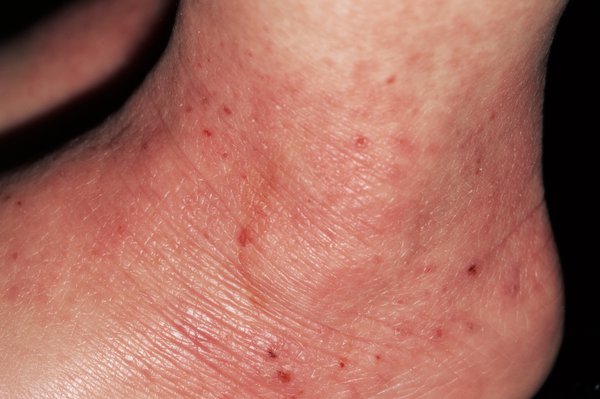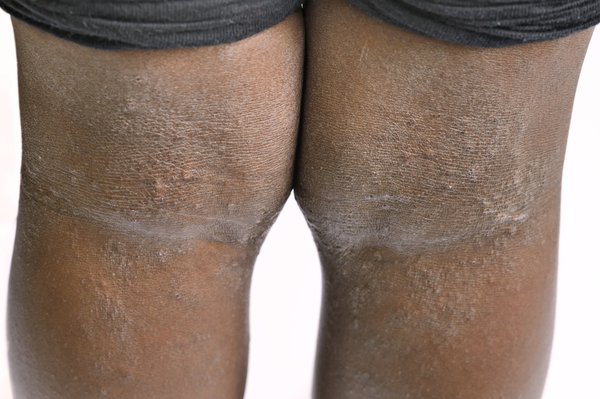
Atopic eczema causes areas of skin to become itchy, dry, cracked and sore.
There are usually periods where the symptoms improve, followed by periods where they get worse (flare-ups). Flare-ups may occur as often as 2 or 3 times a month.
Atopic eczema can occur all over the body, but is most common on the hands (especially fingers) in adults, and the insides of the elbows or backs of the knees, and the face and scalp in children. It may also affect the outside of elbows and front of knees in children with brown and black skin.

Eczema on the ankle.

Eczema on the back of the knees.
The severity of atopic eczema can vary a lot from person to person. People with mild eczema may only have small areas of dry skin that are occasionally itchy. In more severe cases, atopic eczema can cause widespread inflamed skin all over the body and constant itching. Children with black and brown skin may get round patches of eczema on their skin, or eczema where hair grows.
Inflamed skin can look red on white skin, and darker brown, purple or grey on brown or black skin. This can also be more difficult to see on brown and black skin.
Scratching can affect your sleep, make your skin bleed, and cause secondary infections. It can also make itching worse, and a cycle of itching and regular scratching may develop. This can lead to sleepless nights and difficulty concentrating at school or work.
Areas of skin affected by eczema may also turn temporarily darker or lighter after the condition has improved. This is more noticeable in people with black and brown skin. It's not a result of scarring or a side effect of steroid creams, but more of a "footprint" of old inflammation and eventually skin tone returns to its normal colour.
Occasionally, areas of skin affected by atopic eczema can become infected. Signs of an infection can include:
See a doctor as soon as possible if you think your or your child's skin may have become infected.
Read more about infections and other complications of atopic eczema
